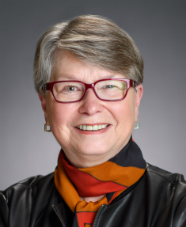News
From the Executive Director: Still learning
 Learning is central to the Society’s mission and identity. “Let the love of learning rule” serves as the guiding principle that links the well over 1.5 million women and men who have accepted the invitation to join Phi Kappa Phi over the past 122 years. Love of learning is the common bond that extends over generational differences, ethnic differences, disciplinary differences, geographic differences and more.
Learning is central to the Society’s mission and identity. “Let the love of learning rule” serves as the guiding principle that links the well over 1.5 million women and men who have accepted the invitation to join Phi Kappa Phi over the past 122 years. Love of learning is the common bond that extends over generational differences, ethnic differences, disciplinary differences, geographic differences and more.
When he was 87, the year before his death, Michelangelo reportedly wrote on the edge of a drawing the words ancora imparo, translated as “I am still learning.” I’ve kept those words on my office wall in whatever venue I find myself. They serve as a reminder that we can learn from every experience.
And yet we know from polling that learning, particularly higher learning, is neither universally embraced nor valued by a significant portion of the American population. Last July, the Pew Research Center found a growing divide in American attitudes toward the effect of higher education on the country. What fuels this thinking?
Distinguished scholar and City University of New York professor Cathy N. Davidson, author of The New Education: How to Revolutionize the University to Prepare Students for a World in Flux (Basic Books, 2017), offered some thoughts in a recent op-ed in The Washington Post entitled “Four Common Lies About Higher Education.” It’s worth a read. Davidson soundly rejects the naysayer argument that college isn’t worth it by constructing a case for the redesign of higher education to empower students for a world far more complex than that of their parents and grandparents. At the same time, she confronts the economic realities of undervalued and undercompensated professions like teaching, social work and health care as well as the massive debt graduates carry as they leave campus.
Those of us who have worked in higher education know this to be true. So what does this have to do with intelligence? Honor societies are frequently accused of being elitist by our very nature, that we admit to membership only those at the top of the class, a/k/a the “smart kids.” We affirm our initiates for their excellence in academic achievement, which assumes intelligence. But intelligence is no longer measured by only one standard. Consider the research of Harvard’s Howard Gardner, who in 1983 introduced his theory of multiple intelligences that identified seven different learning styles, challenging educators to acknowledge these differences in learners.
Multiple intelligences describes well the diversity of Phi Kappa Phi members. We are the collegiate honor society that recognizes excellence in all fields of higher education. Our multidisciplinarity offers a canopy that includes students in the humanities, STEM fields, the arts, health professions, education, business, human services, agriculture, and fields yet to be identified.
Wasn’t it smart of our founders to be so inclusive from the beginning? We’ve learned from them to maintain that standard of inclusivity by welcoming diverse institutions to our community of scholars. And we’re still learning.